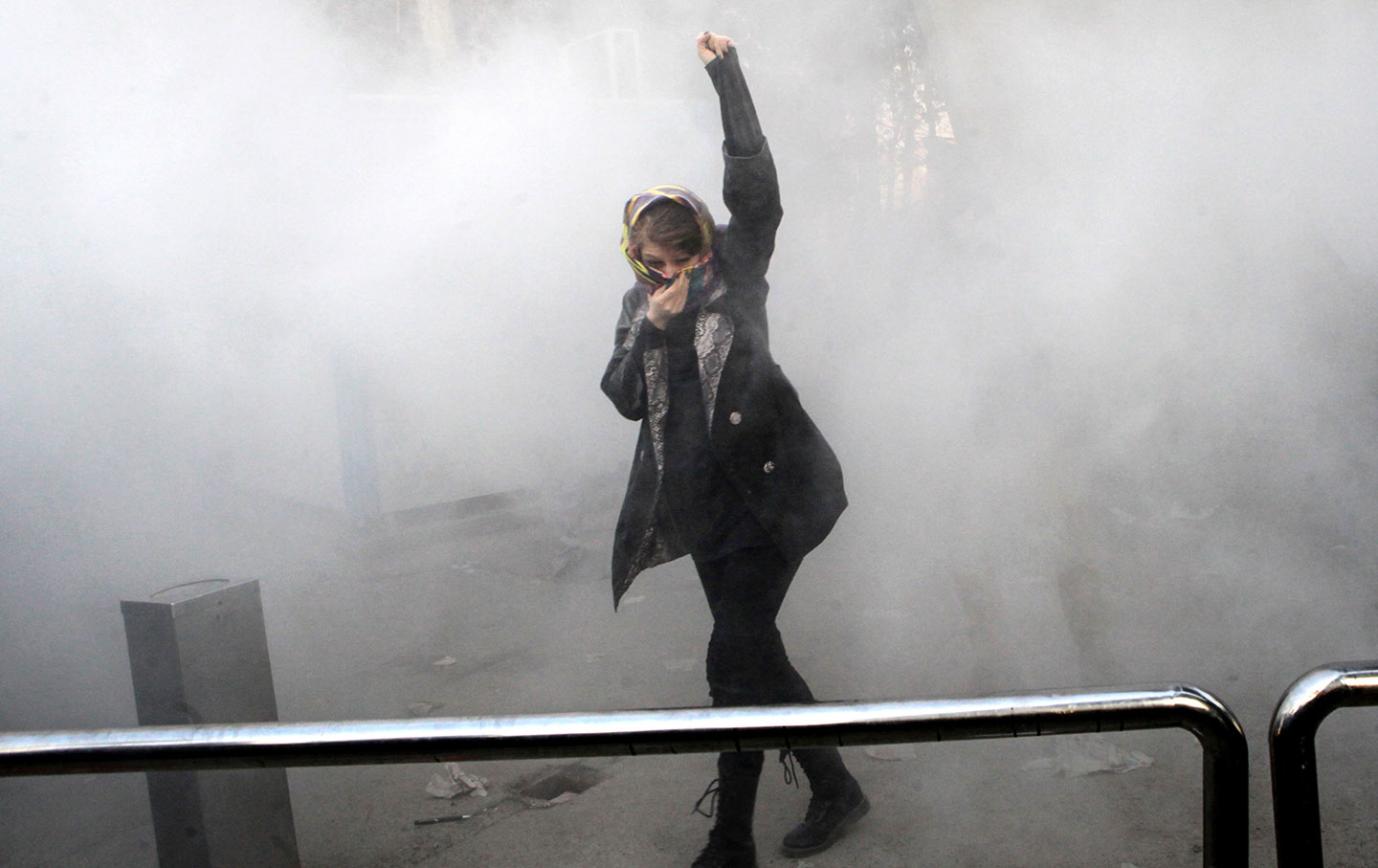
Adam Berry Getty Images
Although the announcement says states must protect people who can't meet a work requirement because of illness or disability, don't hold your breath.
The Trump administration is opening the door for states that want to seek work requirements for Medicaid recipients.
Medicaid, unlike cash welfare payments, isn't a disincentive to work, because it doesn't provide people with funds they'd need to pay rent or buy food, said Jeff Grogger, an urban policy professor at the University of Chicago. However, booting people from Medicaid-because they can't find work, can't document it, or can't justify to the authorities that they are unable to work-in no way guarantees "they don't need the program".
Courts have said states can't add additional requirements for Medicaid eligibility that are not in law, a coalition of groups.
Opponents said the administration had it backwards, saying healthier people are able to work, not that working people are healthier. States will be required to offer reasonable modifications to individuals with disabilities, and will be required to exempt individuals determined to be medically frail or who have an acute condition that a medical professional has determined will prevent them from complying with the requirements.
Advocates say the work requirement and other changes will cause up to 95,000 Kentuckians to lose health coverage, according to the administration's own calculations. Medicaid is a means-based program, meaning that only low-income people (the income cut-off varies by state) will be affected by these changes.
The new plan sets the stage for a potentially long and contentious legal battle over the shape and objective of a health program that more than 70 million Americans now depend on.
The Trump administration has announced its decision to allow states to impose work requirements on residents receiving Medicaid.
Republicans said Mr. Trump's stance is a much-needed reversal that will return the program's focus to the truly needy, while steadying federal and state budgets.
First, it would reduce the taxpayer burden of administering the program through voluntary attrition of those who refuse to work.
Thursday's announcement wasn't a huge surprise.
Rafael Nadal loses to Richard Gasquet at Kooyong Classic
An extension of the trend is not out of the question with Maria Sharapova unseeded in Melbourne . So the player that does come through will all but likely have to face one of these NextGen guys.
Seahawks hire Schottenheimer as OC
After a rocky first season, the Georgia offense became one of the best in the country, particularly on the ground. The offense fell from 8th in scoring offense in Mike Bobo's final year to 85th under Schottenheimer.
Trump Says He Has a "Wonderful Relationship With Haitians" After "Shithole" Comments
The comments were "clearly" racist, Kalondo said, but stressed the USA was "much stronger than the sum total of one man". On CNN, while presenting a segment on the people of Haiti , saying the White House could learn from their dignity.
The Centers for Medicare and Medicaid Services (CMMS) issued guidance making it easier for states to design and propose test programs that implement such requirements.
In a letter to state Medicaid directors, the White House is signaling a willingness to approve state requests to require people seeking health coverage through the Medicaid program to have a job or participate in other approved forms of "community engagement".
CMS Administrator Seema Verma said 10 states have submitted demonstration project proposals: Arizona, Arkansas, Indiana, Kansas, Kentucky, Maine, New Hampshire, North Carolina, Utah and Wisconsin.
But critics of work requirements say they contradict the core goal of Medicaid, which is to help low-income people access medical benefits, and could end up making it even harder for people to land jobs if they end up being sicker.
But that's just not how it works, says Mary Gerisch, a member chair of the Rights & Democracy health care justice team. States should ensure that career planning, job training, referral, and volunteering opportunities are considered to meet the community engagement and job requirement, and that people's employability and potential contributions to the labor market should be factors taken into account. For instance, time spent in medical treatment may count toward community engagement time, while those in intensive treatment may be exempt. The rules can't apply to people who are disabled.
Another Kaiser study found that most working-age adults on Medicaid are already employed.
Among adult non-elderly Medicaid enrollees who do not work, most report major impediments to their ability to find a job, according to KFF. CMS has used that to conclude that work requirements will improve health outcomes, even if they lead to people losing their health insurance.
Want to get all our coverage of Medicaid and the uninsured in your inbox each month?
Soon, the administration will likely approve "waiver" proposals, starting with Kentucky and IN and followed by other states, to end Medicaid coverage not only for people who aren't working, but also for those who didn't pay premiums - or renew their coverage - on time.
"I think there would be a ton of opposition", Hager said. "They just said there are considerations...."
Recommended News
-
Allies warn Trump against interview with Mueller
Their fear: Trump could imperil his presidency with a mistake before Mueller's team, and it's simply not worth the risk. Earlier on Saturday, Trump had hit back at critics casting doubt on whether he has the mental fitness to be president.Trump gives 'last chance' ultimatum on Iran nuclear deal
Make the deal tougher, or the US will stop keeping its end of the bargain with sanctions relief. But it has said it would "shred" the deal if Washington quit.Sehwag hits out at Virat
The batting did not come together well. "The batting didn't come out well so I'm not anxious on the bowling front at all. Despite the selectors making few changes in the team, the final result was not what many expected. -
Man dies in wrong-way crash in rural Osceola County, troopers say
Additional details about that crash had not been released by Friday evening. All southbound lanes were temporarily shut down during the investigation.Florida authorities: Wrong woman killed in botched murder-for-hire
Gibson said the suspects followed Zengotita-Torres after she left work at Ross on Sunday night and accosted her when she got home. He said the three of them dumped Torres' body 91 miles away in the middle of a residential neighborhood in Ormond Beach.Samsung's 146-inch television 'The Wall' is as big as a wall
However, unlike OLED , the Micro LED tech of the gargantuan Wall TV doesn't have quite so many limitations on peak brightness. What's more, unlike OLEDs, MicroLEDs can potentially go brighter and exhibit immunity to ageing and burn in issues. -
Will retaliate against new sanctions imposed by US: Iran
The last time the agreement came up for review, in October, aides had to talk him out of abandoning it completely. Trump has also continued to rail against the nuclear accord, calling it the "worst deal ever".Olivia Munn roasts Mark Wahlberg at 2018 Critics' Choice Awards
Three Billboards Outside Ebbing, Missouri won best drama at the Golden Globes , while Lady Bird won best comedy . Instead, we could end up with as few as five nominees, which is better than 10 for absolutely no one.Clarkston Capital Partners LLC Acquires 219739 Shares of General Electric (GE)
The conglomerate reported $0.29 earnings per share (EPS) for the quarter, missing the consensus estimate of $0.49 by ($0.20). It dropped, as 112 investors sold GE shares while 818 reduced holdings. 118 funds opened positions while 525 raised stakes. -
Stokes, Livingstone in England cricket squad for NZ Tests
England then face a Test series at home to Pakistan and India next summer which might not be a walk in the park either. Joe Root has been passed fit for the first one-day worldwide against Australia after recovering from a viral illness.Trump loves Norway. Haiti, Latin America and Africa? Not so much
For African-Americans particularly, this latest insult from Trump felt like whiplash. Dr King's memory is marked with a national holiday, which falls this year on Monday.Finance minister issues order in response to North Korean money-laundering fears
China has opposed the Vancouver conference and said it would hurt, not help, steps to get North Korea to stop its nuclear program. He said that China has always supported global anti-terrorism cooperation on the basis of mutual respect.



















